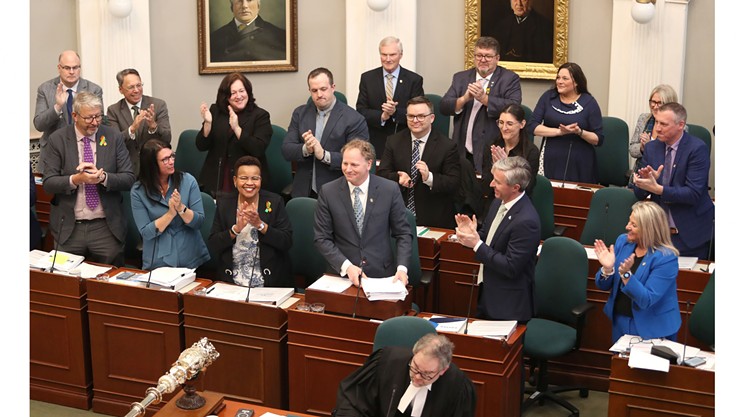Nova Scotia's budget for 2024-25 was released Wednesday Feb. 29. Think of it as a collection of estimates the government makes now, for what it expects to spend on all provincial departments from April 2024 through March 2025. It is planning for a total of $16.5 billion, including an estimated $2.72 billion on education. The budget estimates are being debated every day in the provincial House of Assembly, as part of a process that will see them finalized and passed in the coming weeks.
But after all that work, it’s worth noting the budget is just a best guess. Provincial spending beyond the budgeted $16.5 billion is unavoidable. This post-estimated spending is called “additional appropriations,” and it can be a lot of money.
Take the current budget for example, which is in place until the end of March. As of February, budget 2023-24’s additional appropriations amounted to over $1 billion, a cost overrun of nearly 10%.
Part of that is due to employee agreements that were signed during the year, including $15.4 million for the four-year physicians’ agreement signed July 2023, and $29.9 million in settlement costs with the Nova Scotia Nurses’ Union, which includes nurses represented by four unions in Nova Scotia—NSNU, NSGEU, CUPE and Unifor. These figures are according to the province’s summary of additional appropriations, shared with reporters Wednesday.
Wage negotiations are “ongoing on a regular basis,” a provincial spokesperson explains, because public sector labour relations includes more than 200 employers with approximately 300 collective agreements across several sectors.
For the 2024-25 budget, there are several ongoing bargaining agreements that could result in additional appropriations to the $2.72 billion estimated spending in education. According to the province, these include the ongoing bargaining between the Nova Scotia Teachers Union and the Department of Education and Early Childhood Development, as well as 13 of 17 non-teaching collective agreements across education in Nova Scotia including a variety of unions—all of them set to expire Mar. 31, 2024.
While university employees, like the MSVU faculty who are currently on strike, aren’t a part of provincial labour negotiations, NSCC employees are. The Nova Scotia Community College is currently in active bargaining for renewed collective agreements with faculty and support staff. NSCC has a collective agreement with NSGEU for their operational staff unit that also expires at the end of March.
Bargaining is likewise ongoing with a number of employers and unions within licensed child care. Government is not a party to these agreements, however the effects of these agreements could trace back to extra provincial spending. For anyone missing budget debates when they end later this month, paying attention to public sector bargaining agreements is a way to keep that old feeling alive.












